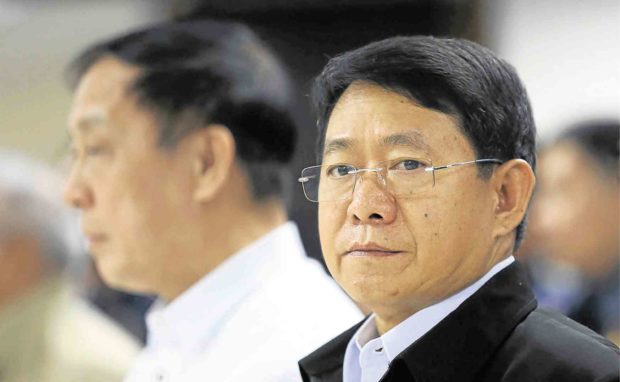With martial law, LGUs in Mindanao are more cooperative—Año

Interior and Local Government Secretary
Eduardo Año. INQUIRER file photo
MANILA, Philippines —Martial law implementation in Mindanao made local government units and chief executives more cooperative in the government’s campaign against lawless groups.
Interior Secretary Eduardo Año said this on Wednesday in defense of a possible martial law extension in the south.
“The implementation of martial law has really provided a good tool for both the military and Philippine National Police (PNP) to do its mandate with the support of the local government units particularly the local chief executives,” Año said during the joint session on martial law extension.
“With the implementation of martial, local government executives are more cooperative, more supportive in our campaign against rebel groups,” he added.
Año also noted that with martial law in effect, Mindanao residents feel safer and they can even “walk around without being subjected to violence by these lawless elements and rebellious groups.”
Article continues after this advertisementHe added that residents wanted to restore checkpoints “because it restricted the movement of armed groups and at the same time (it) restored order in affected areas.”
Article continues after this advertisementIn May 2017, President Rodrigo Duterte declared martial law in Mindanao after the ISIS-inspired Maute Group sieged Marawi City.
Under the 1987 Constitution, martial law can only be imposed for a maximum of 60 days. But before it expired in July last year, Duterte asked Congress for its extension until December 2017.
The President again requested that martial law in the region be extended for a year, or up to December 31, 2018, citing continuous insurgency of the New People’s Army in the region. /jpv
RELATED STORY
Duterte formally asks Senate, House to extend martial law in Mindanao